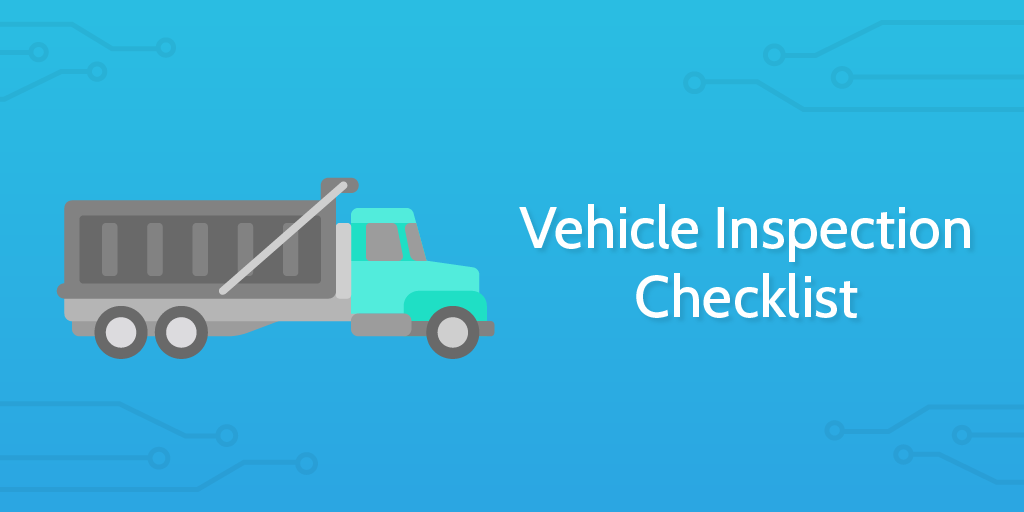Regular vehicle inspections are crucial for ensuring road safety, maintaining vehicle performance, and preventing unexpected breakdowns or accidents. These inspections involve comprehensive checks of various components such as brakes, tires, lights, steering, and suspension systems. By identifying and addressing potential issues early on, inspections help mitigate risks associated with faulty equipment that could compromise driver and passenger safety. Moreover, adhering to scheduled inspections contributes to extending the lifespan of the vehicle and reducing long-term maintenance costs, making it a prudent investment for both vehicle owners and road users alike.

Enhancing Road Safety
Ensuring Proper Functionality
Vehicle inspections play a pivotal role in enhancing road safety by ensuring that critical components such as brakes, tires, and lights are in proper working order. Faulty brakes can impair stopping distances, increasing the risk of collisions, especially in emergency situations. Inspections detect brake pad wear, fluid leaks, or brake system malfunctions that could compromise braking efficiency. Similarly, checking tire tread depth and pressure during inspections helps prevent tire blowouts and loss of vehicle control, particularly at high speeds. Properly functioning lights, including headlights, brake lights, and indicators, enhance visibility and signal intentions to other drivers, reducing the likelihood of accidents on the road.
Compliance with Safety Regulations
Many jurisdictions require periodic vehicle inspections to comply with safety regulations and emission standards. These inspections ensure that vehicles meet minimum safety requirements set by regulatory authorities, including proper vehicle lighting, emissions control, and structural integrity. Compliance with safety regulations through regular inspections contributes to reducing accidents and maintaining overall road safety standards within communities. It also promotes responsible vehicle ownership and reinforces public confidence in roadworthy vehicles operating on public roads.
Preventive Maintenance Benefits
Early Detection of Mechanical Issues
Routine vehicle inspections facilitate early detection of mechanical issues that may not be apparent during day-to-day driving. Professional inspectors assess the condition of engine components, transmission, steering, and suspension systems to identify signs of wear, leaks, or damage. Addressing these issues promptly through preventive maintenance measures such as fluid changes, belt replacements, and component repairs prevents more extensive and costly repairs down the road. Proactive maintenance based on inspection findings improves vehicle reliability and minimizes the likelihood of unexpected breakdowns, ensuring that drivers can depend on their vehicles for daily commuting or long-distance travel.
Extending Vehicle Lifespan
Regular inspections contribute to extending the lifespan of vehicles by identifying and addressing wear and tear before it leads to major mechanical failures. Components subject to routine wear, such as brake pads, belts, and filters, can be replaced during inspections to maintain optimal performance and efficiency. Proper maintenance of engine oil levels and quality, coolant levels, and battery condition also supports engine longevity and overall vehicle durability. By adhering to a scheduled inspection regimen, vehicle owners invest in the longevity and reliability of their vehicles, reducing the need for premature replacements and promoting sustainable vehicle use.
Cost Savings and Efficiency
Minimizing Repair Costs
Scheduled vehicle inspections help minimize repair costs by preventing minor issues from escalating into major mechanical failures. Addressing worn components or fluid leaks early on reduces the likelihood of extensive damage to engine, transmission, or braking systems that would necessitate costly repairs or replacements. Regular maintenance intervals prescribed during inspections, such as oil changes, filter replacements, and brake adjustments, contribute to efficient vehicle operation and optimal fuel efficiency. Ultimately, proactive maintenance practices driven by inspection results lead to significant cost savings over the vehicle’s lifespan, benefiting both individual vehicle owners and fleet operators.
Improving Fuel Economy
Well-maintained vehicles that undergo regular inspections typically achieve better fuel economy compared to neglected counterparts. Inspections address factors that influence fuel efficiency, including proper tire inflation, engine tune-ups, and clean air filters. Maintaining optimal tire pressure reduces rolling resistance and improves traction, while clean filters and well-lubricated engine components facilitate smoother operation and reduced fuel consumption. Vehicle inspections provide opportunities to optimize fuel economy through adjustments and replacements that enhance engine performance and minimize energy losses, aligning with environmental sustainability goals and reducing operational costs for vehicle owners.
Legal and Insurance Considerations
Compliance with Legal Requirements
In many regions, vehicle inspections are mandatory to ensure compliance with legal requirements governing road safety and environmental standards. Regular inspections verify that vehicles meet regulatory criteria for emissions control, noise levels, and structural integrity. Compliance with these standards is essential for vehicle registration, license renewal, and insurance coverage, demonstrating responsible ownership and commitment to public safety. Failure to comply with inspection mandates may result in penalties, fines, or restrictions on vehicle operation, underscoring the importance of scheduled inspections in maintaining legal compliance and operational legitimacy.
Validating Insurance Coverage
Some insurance policies require proof of vehicle inspections as a condition for coverage, particularly for comprehensive or collision insurance plans. Inspections provide insurers with assurance that insured vehicles are maintained in roadworthy condition and pose lower risks of accidents or mechanical failures. Validating vehicle inspections helps streamline insurance claims processes by establishing the vehicle’s condition and adherence to safety standards at the time of policy issuance or renewal. Maintaining up-to-date inspection records ensures continuous insurance coverage and protects vehicle owners from potential liabilities arising from inadequate maintenance or unsafe vehicle conditions.
Summary
Vehicle inspections are integral to promoting road safety, enhancing vehicle performance, and supporting cost-effective maintenance practices for vehicle owners. By ensuring proper functionality of critical components, complying with safety regulations, and facilitating early detection of mechanical issues, inspections contribute to accident prevention and driver safety. Preventive maintenance benefits derived from inspections extend the lifespan of vehicles, minimize repair costs, and optimize fuel efficiency. Moreover, adherence to legal requirements and insurance considerations underscores the importance of scheduled inspections in maintaining compliance and securing insurance coverage. Embracing a proactive approach to vehicle inspections enables drivers to uphold safety standards, preserve vehicle reliability, and achieve sustainable vehicle ownership practices in their communities.